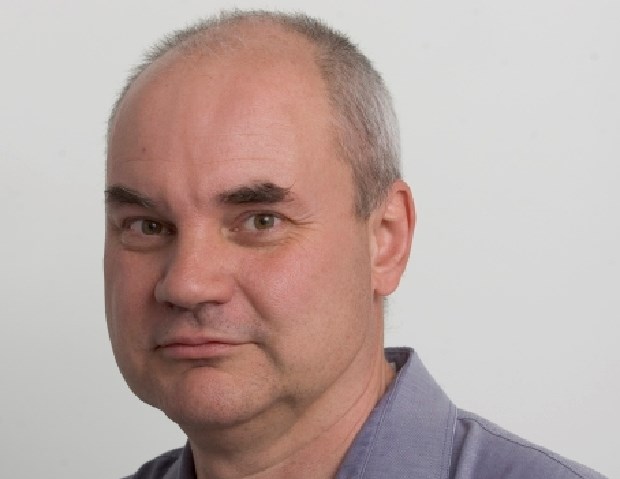Just before Christmas, I was hanging out at a CounterAttack roadblock when one of the cops pulled a big bag of pot out of a van.
It looked like about six ounces, enough to make Woody Harrelson go weak at the knees. Driver busted, right?
Wrong. He produced a Health Canada letter saying he was allowed to hold 180 grams of medical marijuana.
“You know,” grumbled one of the cops as the driver and his dope disappeared into the night, “when I went for a root canal the dentist prescribed me some T3s — but he didn’t give me 100 of them.”
That came to mind Friday while reading of an Ontario arrest in which a family was accused of making hundreds of thousands of dollars by abusing licences to grow medical marijuana.
“In any system there are going to be abuses,” replies Philippe Lucas, a former Victoria city councillor and longtime pot activist. He’s more worried about those who use the system legitimately.
A research affiliate with the Centre for Addictions Research of B.C., Lucas is in the thick of things as Ottawa moves to change the rules regarding medical marijuana. He’s among those working on a certification process for the Canadian Association of Medical Cannabis Dispensaries, and has been doing work for the federally funded Canadian Institutes of Health Research.
Currently, Health Canada licenses about 21,000 people to grow small amounts for themselves or others among the 28,000 ailing Canadians it permits to possess medical marijuana. Some people get pot shipped to them by a government distributor.
Worried that your garden variety drug dealers are shielding themselves with personal-growing licences, Health Canada wants to stop letting users cultivate their own plants as of April 2014. Instead, it proposes licensing commercial operations that would provide all of the country’s medical marijuana.
Lucas has reservations about that. First, one in five of the sick individuals who currently grow their own couldn’t afford the $8.80/gram price proposed by Ottawa. They also might not be able to get the strains that work best for them.
Also, all marijuana would be couriered to individuals. There’s no provision for storefront distribution. “In Victoria right now I’m aware of about five dispensaries,” Lucas says.
Lucas does like Ottawa’s plan to have physicians, not Health Canada bureaucrats, decide who can use the drug. That’s good news, he says, as it could reduce a bureaucratic process that can take six weeks, even months, to a single-day exercise. The Canadian Medical Association is balking, though. It doesn’t want doctors to be the gatekeepers.
Overall, authorities are largely happyish with the proposed changes. As it is, they’re having a hard time keeping a handle on the growth in growing (the Province newspaper reported last week that the number of Health Canada-approved grows in B.C. jumped to 11,601 from 4,169 during 2012). Municipalities, often unaware of where plants are being grown until the dodgy wiring catches fire, are now looking at controlling them through zoning regulations.
That’s just one of the ways authorities deal with a shifting legal landscape.
“We don’t find a lot of issues with medical marijuana now,” says Const. Mike Russell of the Victoria police. If someone found with dope pulls a Health Canada permit, the cops walk away. (But no, the document issued by Victoria’s Cannabis Buyers Club isn’t enough. “That’s not a Get Out of Jail Free card.”)
Enforcement of pot laws across the province appears inconsistent; SFU criminologist Neil Boyd found charges for simple possession of marijuana have fallen to virtually nil in Vancouver proper, but doubled in B.C. RCMP jurisdictions in six years.
What’s unclear is how much pot was possessed by those arrested — one joint, or 30 plants by someone who might have otherwise been done for trafficking. Typically, in Victoria, someone found with a small amount won’t be charged, not unless he’s driving a car or acting like a butthead.
Currently, a group called Sensible B.C. is campaigning for a provincewide referendum to do away with all police resources devoted to arresting adults for possession. The group, with which Lucas is associated, wants minors found in possession to face liquor-type tickets and fines, not criminal charges. Sensible B.C. also wants the provincial government to cover medical marijuana costs as it does other prescription drugs.



